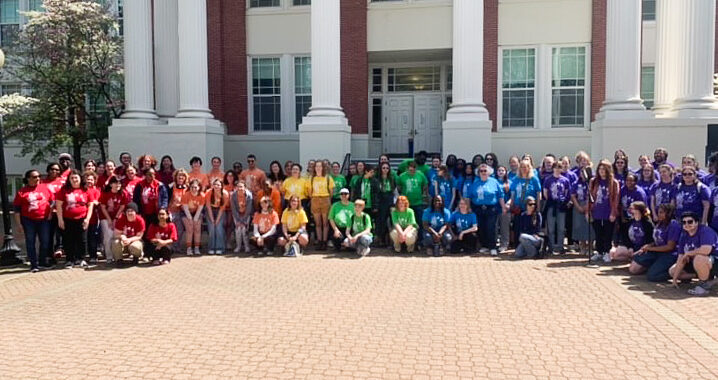Class debates creation of football team
4 min readBY CHRIS MARKHAM
The University of Mary Washington Public Debate Practicum class tackled the question of whether the school should start a varsity football program. The debate was held on Thursday, Oct 24; Yireda Jilili and Teddy Dillon argued the affirmative and Tom Pacheco and David Carpenter argued against a football program.
Dillon spoke first and made a case for the affirmative. His main argument said that starting a football team would ultimately help the University make money, boost school spirit and benefit the demographics of the school. Financially, having a football team would attract more students and bring in more money from tuition. He claimed that a 75-player football roster would raise more than $1.5 million based on tuition rates. School spirit, which according to him is severely lacking, would boom to new heights, unify the campus and attract members of the community, as well as alumni. Additionally, a football program would potentially better the gender imbalance at UMW by attracting more males and help student recruiting.
Carpenter followed Dillon’s speech by providing an opposing account against the program. Carpenter’s main argument was that a football team would break the school’s focus on academics. The program would result in a cutting of club and academic budgets.
“Establishing a football team would diminish the academic integrity of the school,” said Carpenter.
He also claimed that most institutions do not make profit off of their football teams, and a team at UMW would result in an increase of athletic spending and raised tuition, as well as in a less selective admissions process.
Jilili was the next speaker and spent a majority of her time comparing UMW to similar schools, such as Christopher Newport University (CNU). She said that since the establishment of CNU’s football program in the early 2000s, the school rose in popularity, diversity and school spirit, things UMW wants to build on. Even smaller schools than CNU have also shown success in having a football team, according to Jilli.
“Smaller schools than us have had success in their football program,” said Jilili. “Why can’t we do the same?”
Pacheco was the last debater to present an argument. He rebutted the affirmative’s argument by stating that football is an injury-riddled sport, especially with the possibility of concussions, no matter what the level of play. He also said football programs for the most part are not self-sustaining and that football is not needed at UMW.
“Those universities aren’t our university,” said Pacheco. “We don’t need to compare ourselves to CNU, we have other priorities.”
Pacheco stated that the establishment of a team is unnecessary and not in the nature of the university. It is a big risk that we do not need to take.
“We can’t make a team and hope it works out,” said Pacheco. “That’s a Hail-Mary and they don’t usually work out.”
Pacheco used up every second of his time, finishing his address at seven minutes and left the floor open for closing statements.
Each debater was given seven minutes to present their argument, with one person per group presenting at a time and two minutes closing statements from one member of each team at the end of the debate.
Dillion took the podium for the affirmative, reiterating that a football team would bring in revenue for the school and would not hurt the academic integrity of the school.
“Football can work at a liberal arts college,” said Dillon.
Carpenter gave the closing statements for his side, saying anything that comes with a football team is not guaranteed. Whether or not it would make money and improve diversity is something that is too unpredictable to rely on, he said.
“It is a high risk situation, and we don’t know the reward,” said Carpenter.
The floor was open for questions and comments from the audience after the debate ended. Senior Associate Director of Athletics Dana Hall voiced her opinion on the matter. She pointed out that 23 of the top 25 athletic programs in Division III athletics have a football team, proving that football is a valuable asset to an athletic program.
On the opposite side of the spectrum, Hall also pointed out that the sports teams already at UMW are highly competitive and deserve recognition from the student body. Successes include the swimming team with junior Alex Anderson, a national champion last year, and the field hockey team, which advanced to the NCAA Final Four.
“We don’t need a football team,” said Hall. “We are fine with what we have now.”
Students at UMW shared similar feelings about the idea of a team.
“It would be awesome because it would bring in a lot of money. However, the amount of money and time it would take to build a successful program would outweigh the possible benefits,” said junior Brandon Smith. “As cool as it would be, I don’t see it happening in the near future.”











